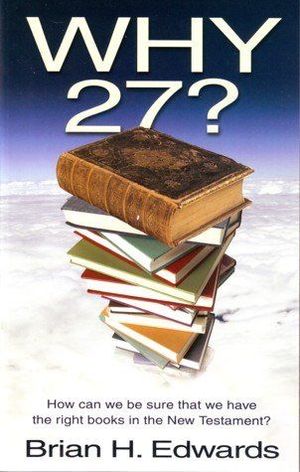Bestsellers like Dan Brown’s Da Vinci Code and Dawkins’ The God Delusion claim that the books in our New Testament were selected at random, centuries after Christ, from a wide pool of possible gospels and other writings such as ‘The Gospel of Judas’. Unfortunately, says Brian Edwards, ‘those who believe the Bible to have divine origin are often ill-equipped to reply to casual defamation of the New Testament Canon’.
Edwards introduces us to the modern debates, then embarks on a readable and informative journey from the times of the apostles through the first three centuries of the early church. From the very beginning, we see that early churches and their leaders recognised certain books as uniquely authoritative and on a par with OT Scriptures. Indeed, there was consistent agreement on all but a handful of NT books, which too were ultimately included.
We also meet the heretics and their spurious writings, with extracts aplenty that make it abundantly clear why they were never even considered for the canon by the mainstream church! Later chapters describe the very earliest NT manuscripts that we have, giving us confidence in the textual accuracy of our Bibles.
Edwards has written a reassuring book, covering lots of material in a clear and interesting way. It should certainly be of help to those who are unsettled by the wild claims of some authors, broadcasters and even academics.
The book’s only real weakness is its tendency to claim slightly more than the evidence allows, particularly in the section on the early dating of various manuscripts. The impression is given that those who query the dates do so only from liberal presuppositions, whereas in fact there are genuine counter-arguments which Edwards never mentions (see e.g. Metzger, Text of the NT, 3rd edition, p.265). None of this, however, undermines Edwards’ main contention and the book is well worth reading.





